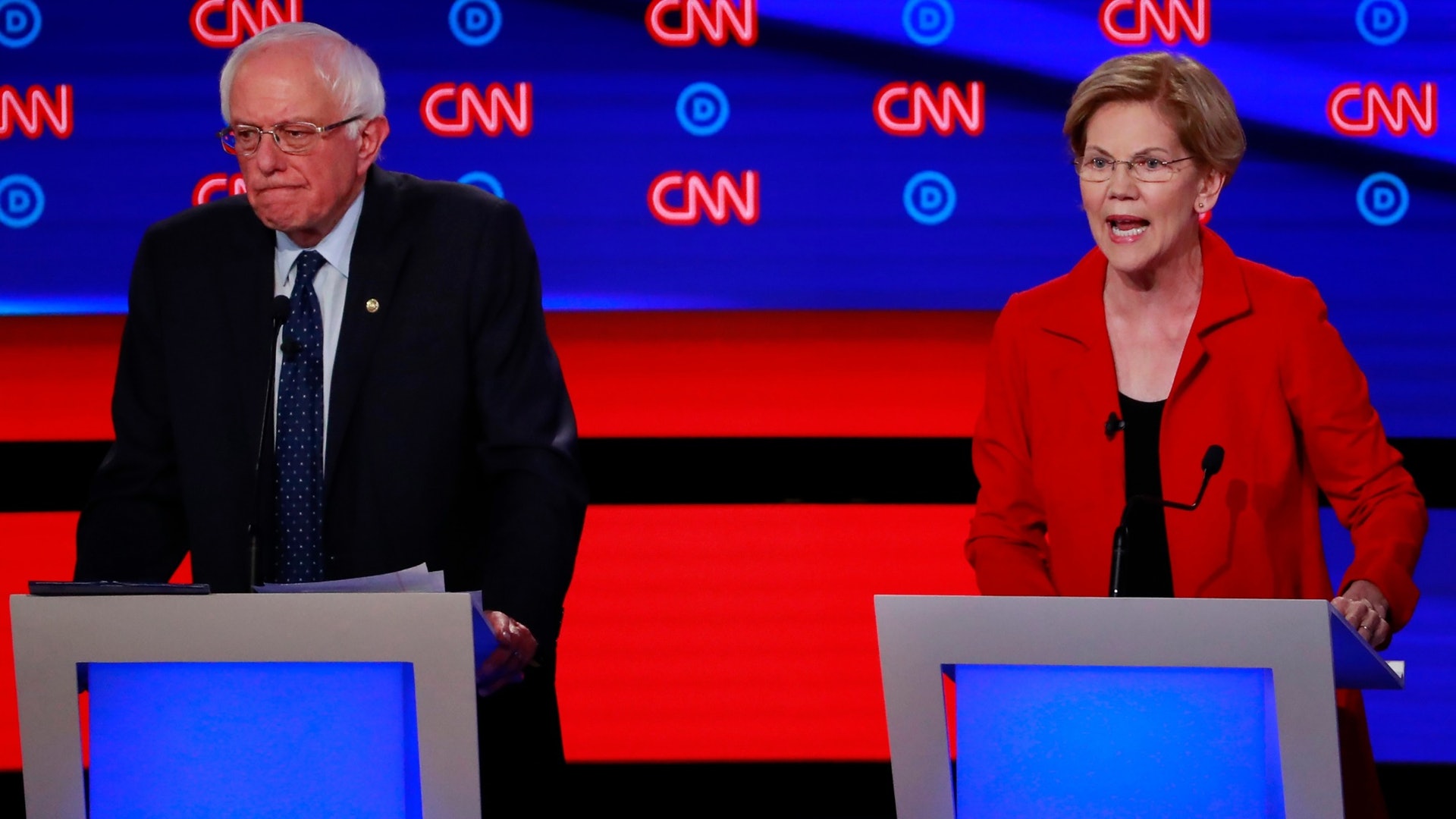On the occasion of China-US trade negotiations in Shanghai, Trump, who is preparing to watch the Democratic presidential primary election debate on Tuesday (July 30), criticized China on Twitter, re-emphasizing China’s desire to drag trade agreements to 2020 The old tune after the US election, the attacking Democrats will not be as tough against China as he is.
Trump warned: “When I win (the 2020 election), they (referring to China) will get a much stricter agreement than today’s negotiations, or there is no agreement at all.”
On the other hand, the Democratic primary debate on Tuesday night also rarely touched trade policy issues. Massachusetts Warren, the senator of the “I have a plan” slogan, just announced his trade platform on Monday (July 29), becoming a rare and complete party in the Democratic Party. A candidate for trade policy.
Political news site Politico commented on his platform: “Close to Trump more than Obama.” Another candidate who belongs to the trade tradition and has a very small chance of winning, former Congressman John Delaney, also strongly criticized the Warren program for making the United States self-defeating.
If Trump’s “unfortunate” re-election fails in 2020, will the Democratic Party return to the free trade route of the past and scream to the rest of the world that “the United States is back!” and then withdraw Trump’s four sides. Trade war?
Is Trump more “Trump” Democrat?
Looking at the Warren trade platform on behalf of the left wing of the Democratic Party, I am afraid that the future Democratic Party will only be Trump more “Trump.”
Unlike Trump’s “American Priority” for his competitive advantage, Warren’s primary enemy is “the interests of giant multinational corporations”. He advocates that any future trade agreement with the United States must be based on the interests of American laborers. However, Warren’s US trade negotiation advantage, like Trump, is based on “the size of the US consumer market,” so it can use tariffs as a tool to force other countries to meet US requirements.
At first glance, this is only the focus of Trump’s trade policy, but Warren’s other trade propositions will provide more gunpowder for US protectionism, rather than having to attribute everything to Trump as Trump does. Above “national security” or “unfair trade policy.”
In addition to labor security, Warren also built trade policies on environmental protection standards and human rights conditions. In the case of labor, unlike Trump’s empty words of “taking work back”, Warren advocates the establishment of a trade advisory committee with “labor representatives to join” to bring labor and consumer rights considerations into trade negotiations. At the same time, she advocated that before each trade negotiation, the draft of the US representative’s agreement must be made public, so that public participation can change the current situation of black box operations.
In addition, Warren even proposed that the impact analysis of any trade agreement can no longer be based on the national scope, but must consider the economic impact of different regions, the trade agreement can not be finalized without the consent of the various regions of the United States. Moreover, she has to change the trade negotiations currently dominated by the White House administration, and advocates giving Congress more power to amend the agreements in the negotiations.
If such complicated negotiation mechanisms are to be implemented, the trade negotiations between the United States and the DPRK will have different specific reasons for exerting pressure on each other at various stages. Similar to the EU-Canada free trade agreement being blocked by the Belgian region. The situation will continue to happen – without having to resort to vulnerabilities such as “national security”.
Put on the protectionism of “moral aura”
What’s more, Warren also put forward a series of negotiating premise, including the requirements of “the United States can’t reach” on the level of labor, environmental protection, human rights, etc., and vowed to promote the idealism of the world with the power of the US market. standard”.
The requirements include: meeting the core labor rights established by the ILO; meeting the human rights guarantee standards of the US State Department’s Country Human Rights Report, especially the guarantee of religious freedom; must be a signatory to the Paris Climate Agreement, and must have Independently verified emission reduction plan; complete elimination of domestic fossil fuel subsidies; not on the US Treasury’s currency manipulation watch list, etc.
International labor protection, environmental protection and human rights standards are almost indisputable arguments in mainstream ideology. Therefore, if the United States wants to revisit existing trade agreements and punish other countries with tariffs, it will be plausible.
However, under these words, Warren is fundamentally different from the real starting point of Trump’s protectionist trade policy. And look at the following words of Warren: “Trade policy can be a powerful tool to help working families.” “When we increase tariffs to support domestic industries, I will ensure that tariff revenues will be used on US workers.” Many powers can rewrite trade policies on their own, and so on. If you tell people these words come from Trump’s mouth, I believe everyone will not doubt.
To put it bluntly, the Democratic Left-wing Trade Policy represented by Warren is only wearing a “moral aura” for Trump’s protectionism.
Of course, Warren can’t represent a traditional Democrat like the former Vice President Joe Biden, but on the one hand the Trumps are not tough enough on the one hand, and on the other hand they are not ideally determined by the left wing of the party. Under the influence of the doctrine of the doctrine, I am afraid that any presidential candidate of the Democratic Party will come to power, and he will have to exalt the left-wing ideals like Warren, and then continue to implement Trump’s protectionist policies.












